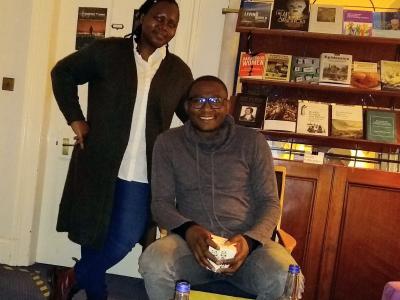
This project, Decolonising Structures in Higher Education, came together for a period of four days, 1-4 March 2022. The first two days allowed the primary participants, Dr CL Nash, Dr Siphiwe Dube and Ms. Soko-de Jong, to explore major grant applications. Each participant led a seminar on Thursday 3 March with titles such as Divine Decolonial Praxis: an Epistemological Contestation of White Jesus and Towards a Decolonial Political Theology of Vulnerability: Reflections from the Margins. The last day allowed one last seminar, led by Dr Rashné Limki (Lecturer in Work and Organisation Studies at the University of Edinburgh), who provided insight into the way decolonial initiatives can impact policy.
During the seminars, the overall goal was to explore the relationship between racial colonial structures and Christianity, broadly construed, within higher education. Colonial structures maintain and privilege power based on the social construction of “Whiteness.” This interdisciplinary project foregrounded an analysis of White supremacy within a Christian epistemological framework. This allowed us to explore religious knowledge production in our seminars and discussions. As a site of knowledge production, the university has the power to identify relevant histories, assign the definition of rigour to its preferred thinkers, and further reify these assumptions with its hiring and research agendas.
In this moment, the university continues to play a vital role in engaging decoloniality movements as shifting, changing and evolving. By identifying the assumptions which frequently collapse racial colonial structures into much of Christianity, colonial structures work to maintain and privilege power based on “Whiteness” as a social form of hierarchy. The way this power functions within Christianity deserves a more rigorous critique. This interdisciplinary work analysed White Supremacy as an epistemological framework functioning within Christian theology with a focus on this functionality where there is a focus on teaching about Christianity and/or training Christian ministers. As a site of knowledge production, the university plays a critical role in engaging with the possible changes and limits within the decoloniality movement.
In our meeting with faculty within religious education in at least five different countries including Scotland (University of Edinburgh), the need to add theological insights to this current discourse is apparent. Therefore, the three primary scholars (Nash, Dube and Soko-de Jong) have committed to collaborate on upcoming grant submissions. If funding permits, we will add a joint article submission to that output.
The project was supported by the Susan Manning Workshop Fund at IASH.
